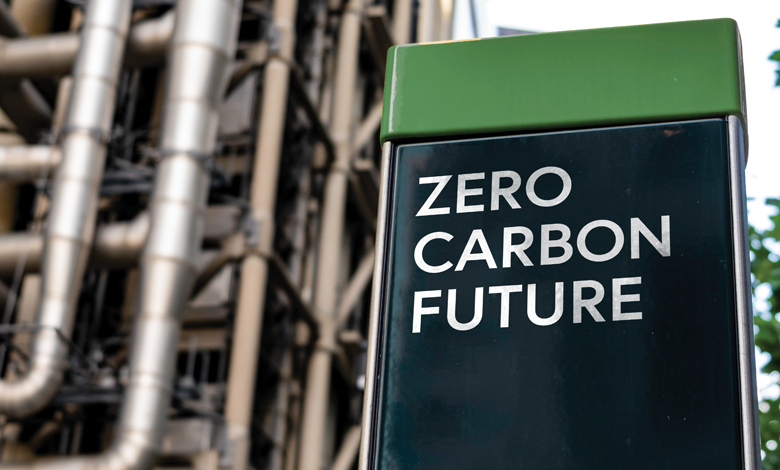Decarbonising the public sector

The Public Sector Climate Action Mandate, a feature within Climate Action Plan 2024, outlines significant steps to reduce emissions across public sector operations.
Central to the mandate, published alongside Climate Action Plan 2024 in December 2023, is the decarbonisation of state-owned assets such as buildings, vehicles, and operational practices, aimed at achieving a 51 per cent reduction in energy-related greenhouse gas (GHG) emissions by 2030.
The Public Sector Climate Action Mandate is built around two primary objectives for the public sector:
• reducing energy-related GHG emissions by 51 per cent; and
• improving energy efficiency by 50 per cent by 2030.
The mandate applies to all public sector bodies, except for local authorities, commercial semi-state bodies, and the school sector.
Enhancing energy efficiency and building retrofits
One of the key components of the public sector decarbonisation strategy is improving the energy efficiency of public buildings. The mandate specifies that public bodies must begin deep retrofits of at least one building by 2024. This process will play a vital role in transitioning older buildings to nearly zero energy buildings (NZEB) or zero emission buildings (ZEB), with the ultimate goal of reaching this standard by 2050.
Retrofitting is cited as a measure which not only addresses current emissions from building operations, but also sets a precedent for future infrastructure developments. Public bodies with large estates are expected to create portfolio building stock plans by the end of 2024, determining which buildings are suitable for retrofitting and aligning these projects with national climate goals. Smaller organisations are also encouraged to conduct building stock analyses as part of their overall decarbonisation strategies.
Moreover, the mandate prohibits public bodies from installing fossil fuel-based heating systems in new buildings or major renovations, unless exceptional circumstances apply. This includes a transition to renewable heating systems like heat pumps, ensuring that the public sector leads by example in using cleaner, more efficient technologies.
Zero emissions transport
The transition to zero emissions vehicles is another central pillar of the Public Sector Climate Action Mandate. The mandate requires public bodies to procure only zero-emissions vehicles starting from the end of 2022, in alignment with the EU Clean Vehicles Directive. This policy represents a significant move toward decarbonising public sector transport, with the goal of completely phasing out fossil fuel-dependent vehicles by 2030.
The challenge of transitioning heavy duty vehicles to zero emissions alternatives is acknowledged in the mandate, particularly given current market limitations. However, public bodies are encouraged to procure ‘clean vehicles’ that meet the EU’s directive and contribute to reducing the carbon footprint of public transport operations.
In addition, by 2024, all public sector bodies with vehicle fleets must develop plans for installing electric vehicle (EV) charging infrastructure. This ensures that the necessary infrastructure is in place to support the wider adoption of zero emissions vehicles, aligning fleet decarbonisation timelines with the overall climate action goals.
Green procurement and waste management
The decarbonisation of public assets extends beyond transport and buildings to include sustainable procurement practices. Green public procurement (GPP) is central to this effort, requiring public bodies to prioritise environmental criteria when purchasing goods and services. The Environmental Protection Agency’s (EPA) Green Public Procurement Guidance serves as a resource for integrating sustainability into procurement decisions, particularly for construction projects that can leverage low-carbon materials, such as environmentally friendly cement.
The mandate also places a strong emphasis on resource and waste management, ensuring that public sector operations align with circular economy principles. By 2024, all public bodies must monitor and measure food waste, with the goal of reducing waste generation and improving segregation. Contracts related to food services must include specific measures to prevent and manage food waste, reinforcing the public sector’s role in promoting sustainable consumption.
The mandate further encourages public bodies to eliminate single-use plastics and shift towards digital processes to reduce paper consumption. Where paper use is unavoidable, recycled paper must be the default option. These steps not only reduce the environmental impact of public sector operations but also contribute to Ireland’s broader sustainability objectives.
Organisational leadership
To facilitate a cultural shift in how public bodies approach sustainability, the mandate calls for the establishment of green teams within each organisation, responsible for driving climate action and sustainability initiatives. These teams, reporting directly to senior management, are to ensure that climate considerations are integrated into decision-making processes at every level.
Senior management and state board members are also required to complete climate action leadership training. This initiative is designed to equip decision-makers with the knowledge and tools needed to lead effectively in the decarbonisation effort. Green procurement training for staff further ensures that public bodies can make informed purchasing decisions that align with environmental goals.
The mandate also requires annual reporting on GHG emissions, implementation progress, and sustainability activities. This transparency fosters a culture of accountability, where public bodies are encouraged to continuously improve their performance in line with the national decarbonisation strategy.
The mandate, like the wider Climate Action Plan, does not go into detail about how the proposed measures should be achieved by relevant bodies, rather outlining a general vision of decarbonisation along with broad measures such as “decarbonising fleets”. As with the private sector, bold decisions will be required by individual decision-makers within each organisation in order to accelerate the decarbonisation of Ireland’s state-owned assets.





